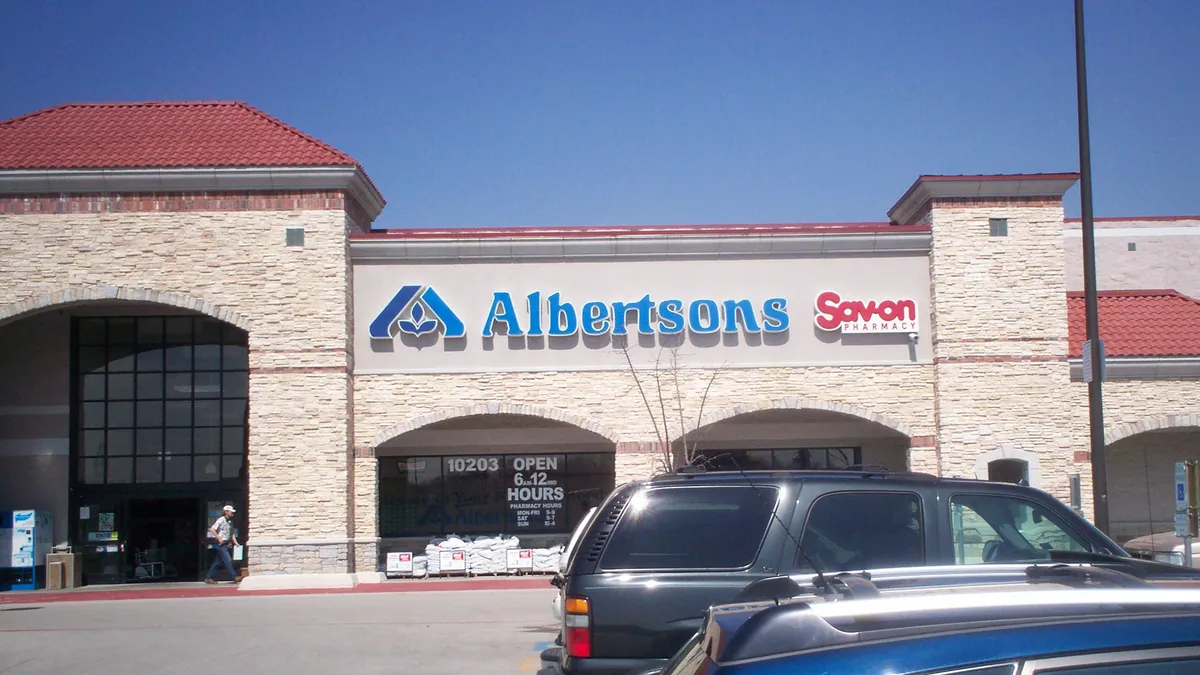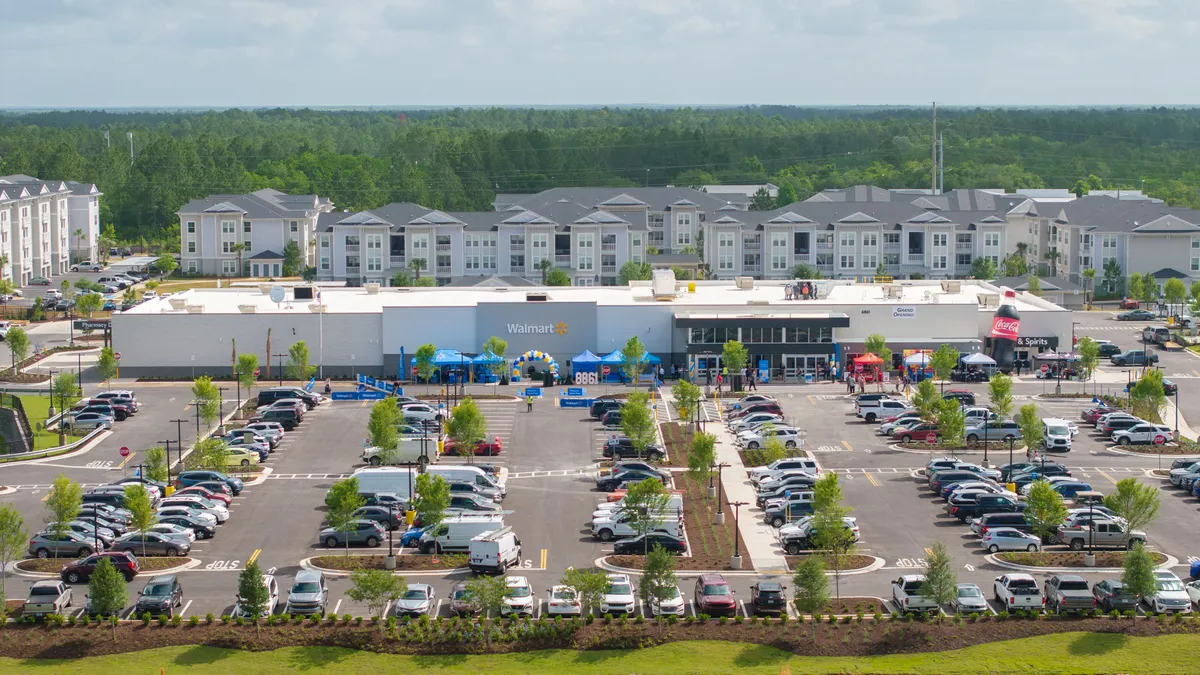Dive Brief:
- Albertsons reported a 26.7% decrease in gross profit margin along with a 1.8% decline in same-store sales for the third quarter 2017, ended Dec. 2, according to a filing with the Securities and Exchanges Commission. Total sales for the quarter were flat compared to the year-ago period, at $13.6 billion.
- Store traffic also declined 2.7% as the company's promotions failed to gain traction, CEO Bob Miller told analysts during a conference call this week. Miller did note, however, that traffic and same-store sales have improved over the past month as Albertsons has focused investments on growth markets around the country.
- Albertsons also announced this week that it had reached an agreement to sell its 49% stake in Mexican grocery chain Casa Ley to Tenedora CL del Noroeste for $345 million. Safeway owned the Casa Ley stake when it merged with Albertsons in 2015, and the two retailers said then that they would sell that interest.
Dive Insight:
This was a tough quarter for one of the fastest growing supermarket chains in the U.S. Price cuts and other promotions meant to boost store traffic had no impact for Albertsons as competing chains countered its moves in markets across the country.
Indeed, although deflation continues to ease, price competition remains fierce as retailers battle for precious market share.
"We expected to see significant sales improvement as a result of price and promotional investments, but we experienced disappointing results from these investments," Albertsons CEO Bob Miller said in a conference call with analysts this week.
Miller also said that continuing integration costs with Safeway, including store system conversions and distribution center consolidation, were a drag on profits. He noted those costs are going to decrease, and said he expects positive same-store sales and improving traffic across 2018.
Albertsons, one of the most active acquirers in the industry, certainly has some promising investments in its portfolio. It spent an estimated $200 million to acquire meal kit company Plated last fall. Stores in Northern California have begun introducing the new kits, and Miller said that rollout will push into new regions throughout this year. Albertsons also recently acquired a 45% stake in El Rancho, a 16-store grocer in Texas that's riding the wave of demand for authentic Hispanic products and prepared foods.
In November, Albertsons announced a partnership with Instacart to offer same-day grocery delivery from more than 1,800 stores. That deal adds on to the retailer's delivery and store pickup services in select markets, and aims to make Albertsons more competitive with Kroger, Walmart and Amazon.
However, Albertsons lags in a few key areas. It's Drive Up and Go store pickup service has seen strong returns and will expand to 500 stores this year, Miller noted — a significant expansion, but well off the pace set by Kroger and Walmart, which both offer click-and-collect services at more than 1,000 stores. Albertsons O Organics, meanwhile, just hit $1 billion in annual sales — which, again, is significant, but well shy of the $2 billion Kroger's Simple Truth brand rakes in each year.
Albertsons should, as Miller predicted, see better financial results as this year progresses. But competitive pressures and late-to-the-game investments mean stellar returns probably aren't in the cards anytime soon.










